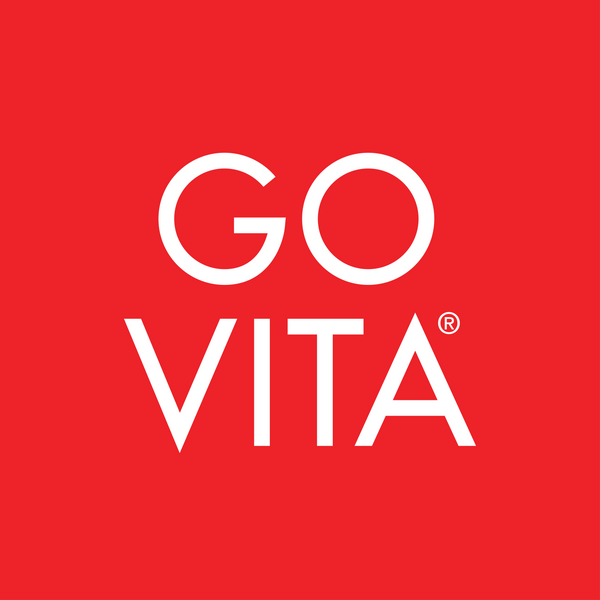
Seasonal Allergies: What You Haven’t Been Told
Share
Spring rolls in with blue skies, blossoms… and for many people, blocked sinuses, itchy eyes, sneezing fits, and a brain full of fog. If that sounds like you, you’re not imagining it, seasonal allergies are on the rise, and pollen is only part of the problem.
At Go Vita Tanunda, we see people every year trying antihistamines, nasal sprays, and endless tissues, without lasting relief. So why does it keep coming back?
It’s Not Just Pollen
Hayfever isn’t caused by hay, and it’s not a fever. What’s really going on is that your immune system is overreacting to something harmless (like grass, pollen, or dust), treating it like a serious threat. That immune reaction releases histamine, a chemical that causes all the classic allergy symptoms: runny nose, red eyes, sneezing, sinus congestion, and that heavy, foggy-headed feeling.
The real issue? Histamine overload.
Histamine is part of your body’s natural defence system. But when you’re stressed, inflamed, nutrient-depleted, or your gut isn’t functioning well, your body doesn’t regulate it properly. The result? You react more easily, more often, and more severely, even to everyday triggers like wine, cheese, or the change of seasons.
What Makes It Worse?
It’s not just about what’s floating through the air. Histamine can build up from things you eat, how you live, and how well your body’s systems are functioning.
Lesser-known triggers include:
- Fermented or leftover foods, smoked meats, wine and aged cheese
- Poor sleep or high stress
- Gut issues like IBS or leaky gut
- Hormonal shifts (PMS hayfever is real)
- Nutrient deficiencies - especially Vitamin C, Zinc, B6 and Quercetin
For some women, symptoms flare before their period thanks to natural hormone changes that increase histamine. For others, it’s gut health or stress that kicks it off. If you’re waking up stuffy even indoors, reacting after meals, or feel worse after wine or chocolate, that’s histamine, not just hayfever.
Why You Feel Like You’re Breathing Through a Mask
One of the most common things we hear in-store is:
“I just can’t clear my sinuses.”
Histamine doesn’t only cause sneezing, it inflames the delicate linings of your sinuses, throat, ears, and eyes. You’re left feeling swollen, congested, and unable to think straight.
That’s why our approach goes beyond the usual suspects. It’s not just about blocking histamine; it’s about helping your body regulate it, reduce the inflammation, and restore calm from within.
Ingredients That Actually Help (Backed by Years of Use)
Some natural nutrients and herbs have been used in clinical settings for years to do just that:
Quercetin: A powerful natural antihistamine that helps stabilise mast cells (those little guys that dump histamine into your system). It’s especially helpful for sinus congestion, sneezing, and inflammation.
- Vitamin C: Helps break down and clear excess histamine from the body. It’s also anti-inflammatory and supports your immune system.
- Zinc: Essential for immune health and mucosal healing. Low levels can mean you react more easily to allergens.
- Eyebright (Euphrasia): Known for soothing red, itchy eyes, sneezing, and nasal irritation, like nature’s allergy eye drops.
- Horseradish & Garlic: These act as natural decongestants, breaking up mucus and opening the airways.
- Baical Skullcap: A lesser-known herb with potent anti-inflammatory and anti-allergic properties.
Together, these nutrients help reduce the allergic response at the source, not just mask it.
What About Kids?
Allergies don’t just affect adults — and we get plenty of parents looking for gentle, natural solutions for their kids. The good news? There are effective options that are:
- Free from drowsiness and rebound effects
- Gentle on little tummies
- Designed to support immune balance over time
Our Natural Allergy Relief Toolkit includes a special section on children’s options, including food tips, safe remedies, and advice on what’s appropriate for different ages.
What You Can Do Today
Simple daily habits can go a long way to ease your histamine load:
- Start your day with a vitamin C-rich smoothie: Try pineapple (which also contains bromelain for sinus relief), kiwi, and baby spinach blended with chilled coconut water. Add a scoop of vitamin C powder for an extra boost.
- Sip nettle or chamomile tea: Both are soothing, gentle, and have natural antihistamine actions. These can be enjoyed by most children as well, especially with a teaspoon of local or Manuka honey stirred through.
- Avoid histamine-heavy leftovers or fermented foods during allergy flare-ups. The longer food is stored, the more histamine it tends to contain (especially meats).
- Get outside and move gently: A morning walk, deep breathing, and sunlight help reset your nervous system and reduce inflammation.
- Stay hydrated and prioritise sleep: The basics matter more than you think when it comes to allergic resilience.
Want Support That Actually Works?
You don’t need to suffer through spring with a packet of tissues in one hand and antihistamines in the other.
This September only, receive our "Natural Allergy Relief Toolkit" as a bonus when you purchase our most effective natural allergy supports in-store or online.
The toolkit is packed with practical tools to help you get real results. including a daily symptom tracker, histamine-smart food and supplement ideas, tips for kids, hormone-allergy insights, and easy morning and night routines.
It’s designed to help you make the most of your products, get relief faster, and understand what’s really going on behind your symptoms.
Need personalised support? Pop in and chat to one of our naturopaths.
And if you suspect your hormones are adding fuel to the fire, don’t miss our upcoming event:
"Hormones in Your 20s & 30s" with Naturopath Pete
Monday 29th Sept | In-store + Zoom
For personalised advice and practitioner-approved support, come and see us in-store at Go Vita Tanunda - your local health destination for natural allergy care.
